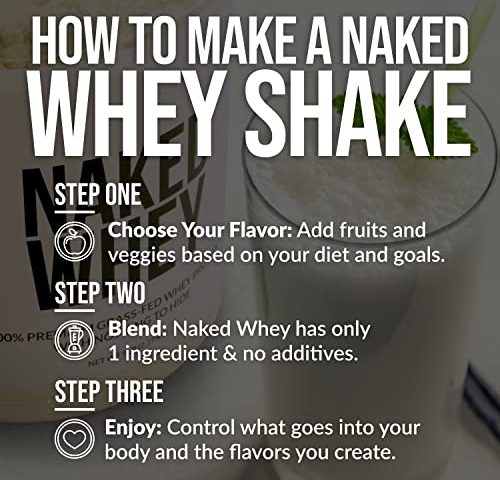What Is Whey Protein?
Whey protein can help athletes recover quickly after workouts or anyone looking to build muscle. It provides your body with all the essential amino acids needed to grow and repair muscles.
Whey protein can be found in cheese, as a powder to create protein shakes and meal replacements, and as a weight-loss supplement.
Benefits of whey protein 
Whey protein is a form of milk protein derived from cow’s milk that provides essential amino acids that your body requires to function optimally.
These benefits of CBD products for women include improving immune systems, reducing inflammation and maintaining healthy blood pressure levels, aiding weight loss, and managing blood sugar.
Furthermore, it can help boost energy levels and muscle development while serving as a good source of essential vitamins and minerals, including B-complex vitamins, calcium, potassium, iron, magnesium zinc.
Furthermore, this food is low in fat and cholesterol content while having very little lactose – perfect for people with digestive issues or sensitivities to milk products.
Types of whey protein
Whey protein is an integral bioactive component in dairy products such as milk, cheese, butter, and yogurt, providing essential muscle-building nutrition. Athletes seeking muscle growth often rely on this crucial dietary source of whey.
Understanding their differences will help you select which is right for you. Three primary forms of whey protein are available – concentrate, isolate, and hydrolysate. Understanding their characteristics will allow you to choose the most suitable option.
Whey Protein Isolate: This highly filtered version contains less fat, cholesterol, and carbohydrates than its whey protein concentrate counterpart, typically boasting 90% or more protein by weight and making it suitable for lactose intolerance sufferers or anyone seeking to maintain muscle while cutting fat intake. It may be beneficial when strengthening muscles while losing fat simultaneously.
Infant formula and medical and nutritional supplements frequently employ this form. Enzymatic processing breaks long proteins into shorter chains called peptides for easier digestion and quicker absorption by the body.
Whey protein supplements
Whey protein supplements are an effective way to increase your daily protein consumption. They can be ideal for bodybuilders, helping them reach other health goals like losing weight or raising cholesterol levels. Whey can even help those looking to build muscles.
Whey protein supplements typically offer approximately 30 grams of protein per serving, providing an excellent source of essential amino acids and muscle-building components. Your choice of powder will depend upon both personal preferences and healthcare needs.
Whey protein powders typically come in powdered form and are packaged in tubs with scoops for measuring portions for smoothies and shakes. Flavored or sweetened versions may also be available depending on your brand of choice.
Whey protein is a dairy product and thus generally safe to consume; however, before choosing a whey protein supplement, it is wise to consult a dietician or physician first. Vegans or lactose intolerant should avoid it as this protein supplement could lead to digestive issues like bloating and gas.
Timing of whey protein consumption
Dietary protein is essential to many bodily processes, such as muscle repair, growth and development, metabolism support, and fluid balance regulation. Furthermore, regularly consuming it strengthens immunity while helping balance fluid balance and maintain pH levels within our systems.
Whey protein is ideal for reaching your daily protein requirement of 20-40 grams. Plus, its easy consumption makes reaching this mark even simpler! Powder forms allow users to mix it with a liquid such as water or milk for quick consumption.
Consume protein shakes pre- and post-workout to support muscle growth, and take one before bed to promote recovery.
Studies show that timing protein shake consumption to promote muscle building and maintenance is often discussed within the sports nutrition community as an integral element. Unfortunately, research indicates that anabolic windows (i.e., times during which muscle protein synthesis (MPS) increases) tend to close within three hours after each meal is eaten.
Whey protein and muscle building
Whey protein is a potency muscle-building supplement, helping you build strength and leanness with each intake. Furthermore, its health may benefit people with diabetes and other medical conditions.
Taking whey protein supplements alongside proper diet and exercise is vital for building muscle mass and strength.
Studies indicate that taking 20-30 grams of whey protein immediately following exercise can dramatically enhance your post-workout muscle growth response. Whey is easily digested and absorbed by your body, helping it reach muscle tissues more quickly.
Whey protein provides an abundant source of the amino acid leucine, an essential factor in stimulating muscle tissue regeneration.
While your requirements depend on your body’s needs, experts suggest taking about 0.6-0.9 grams per pound of body weight to stimulate muscle growth alongside resistance training exercises.
Whey protein and weight loss
Whey protein is an indispensable tool in the quest to lose weight. This nutrient helps decrease hunger while simultaneously increasing metabolism – thus leading to the burning of more calories than consumed!
Soda also increases satiety, so you won’t feel hungry and overeat as often. Alongside an active lifestyle and a healthy diet, soda can help maintain weight management.
An energy-boosting high-protein diet is also beneficial in keeping energy levels steady throughout the day, as it keeps you feeling full for an extended period. This is particularly helpful for overweight or obese individuals.
Whey protein consumption can help regulate your blood sugar levels, making it particularly helpful if you suffer from diabetes as it helps avoid sudden spikes after meals.
Whey protein comes in various forms, including isolate, hydrolysate, and protein blends. Isolate is the most popular choice as it is low in fat and lactose but high in protein content; plus, its digestibility makes it one of the most accessible forms of whey.
Whey protein and women
Whey protein consumption has been demonstrated to have an exceptional influence on women’s body composition, specifically bone health and muscle strength. Protein-rich food and supplements may reduce fat while protecting lean muscle mass.
Whey protein can also help suppress hunger and cravings by balancing secretions of appetite-regulating hormones such as leptin and ghrelin.
Whey protein supplements can be an invaluable aid for weight loss, helping keep you feeling full for longer and limiting snacking between meals. Plus, they may speed up metabolism to effectively burn excess fat!
Whey shakes also help prevent hair loss, as protein is integral to hair structure and growth. Taking them regularly may promote more growth while helping protect against receding hairlines or bald patches.
Whey protein and veganism
Many people choose a vegan diet out of concern for animal welfare and environmental impact or as an ethical way of life choice. Vegans may also wish to steer clear of products tested on animals.
Whey protein is the water-soluble component of milk produced during cheesemaking by straining liquid residue left from curdling milk and straining it out into an extract form, then drying and powdering it into dry powder form for use in supplements or food products.
Whey protein isolate is a 100% natural product with no additives or synthetic ingredients added to increase concentration. It provides all nine essential amino acids for total body health, including leucine and isoleucine.
Whey stands out from other dairy proteins by having its distinct taste, making it an attractive option for vegetarians and other food groups who wish to remain lactose-intolerant. Unfortunately, it doesn’t provide as many nutritional advantages as proteins derived from plant sources.
Many individuals have switched from using whey protein powders to plant-based proteins to build muscles and increase strength gains. Studies have demonstrated this.

